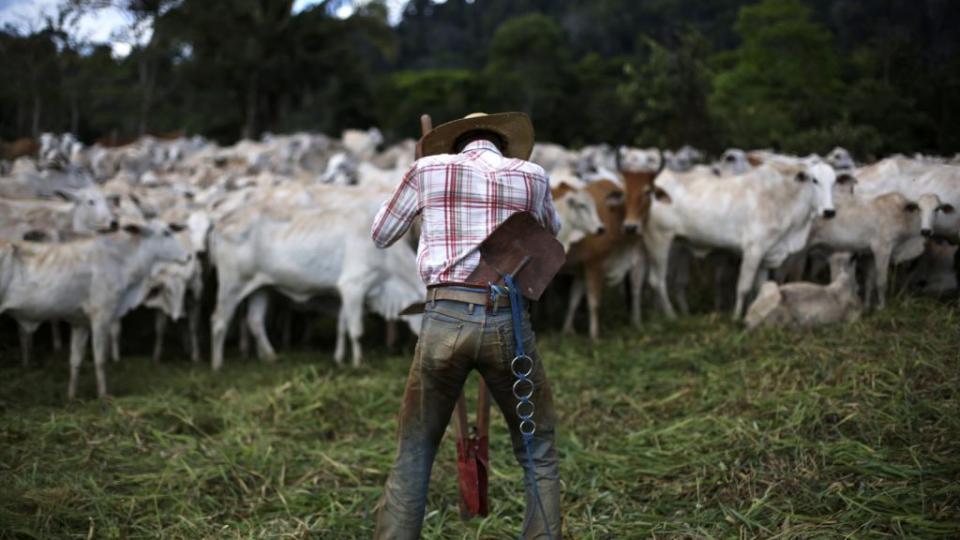Global banks have $2.8 trillion-worth of power to stop deforestation, and only a handful are using it

Protecting forests is kind of a no-brainer, given that they’re one of the only ways we have of making sure harmful greenhouse gases released from burning fossil fuels are reabsorbed and stored, rather than staying in the atmosphere.
Nevertheless, large-scale deforestation accounts for about 15% of greenhouse gas emissions globally each year, mainly due to four profitable industries: cattle, soy, palm oil, and timber. And the companies that directly cause it, profit from it, and—crucially—fund it are barely trying to solve the problem, according to reports released this week about the backers and beneficiaries of cutting down virgin forests.
One key group that could do much more are finance companies, according to a report (pdf) published this week by the Global Canopy Programme, a UK-based think tank that works to safeguard forests. Since 2014 the group has tracked what it called the “Forest 500,” a collection comprising 150 financial institutions and 250 companies, as well as some other actors at the sharp end of deforestation.
Those 150 finance companies own $2.8 trillion in shares, loans, or bonds of the 250 companies operating in four key supply chains that contribute most heavily to deforestation, the GCP told Quartz. And only four banks have policies in place to try and ensure their money doesn’t fund the destruction of forests in all four key industries.
Some lenders have realized that deforestation also represents a risk to their portfolios—including business impacts resulting from climate change, or reputational damage due to disputes with indigenous peoples.
Of the lenders that represent that $2.8 trillion, four have made plans to halt deforestation of “primary, intact, or high conservation value forests” by vetting the companies they make loans to, the report says: BNP Paribas of France, Deutsche Bank of Germany, Switzerland’s UBS, and HSBC, headquartered in the UK. These banks have policies that commit them to removing deforestation associated with cattle, palm oil, soy, and timber from their portfolios.
Nearly a quarter of the rest have instituted checks on companies in at least one of those business areas to ensure that they are guarding against deforestation. Most of the rest have some sort of anti-deforestation policy, which can be pretty toothless. A further 19%—including Warren Buffet’s Berkshire Hathaway—have no policies at all related to curbing forest destruction from their portfolio companies.
And the report finds that even when financial institutions commit to halt deforestation, they don’t stick to their promises. The GCP found that while some financial institutions detail ways in which they’ll monitor compliance by companies they invest in, three-quarters have nevertheless made loans to companies that lack the relevant anti-deforestation safeguards.
Of course, the main onus should be on companies perpetrating deforestation in the first place, and the GCP’s report goes into detail about 250 of them. In terms of industry, cattle was found to be not only the biggest driver of deforestation, but also the industry least committed to curbing it. Fewer than 30% of cattle companies had a sustainability policy of any kind, the think tank found.
The report was published the same day as another which found that only a fraction of companies know where their supply chains begin and thus whether they contribute to deforestation. Most companies fail to disclose any information about whether they help cause deforestation.

Sign up for the Quartz Daily Brief, our free daily newsletter with the world’s most important and interesting news.
More stories from Quartz:

 Yahoo Finance
Yahoo Finance 